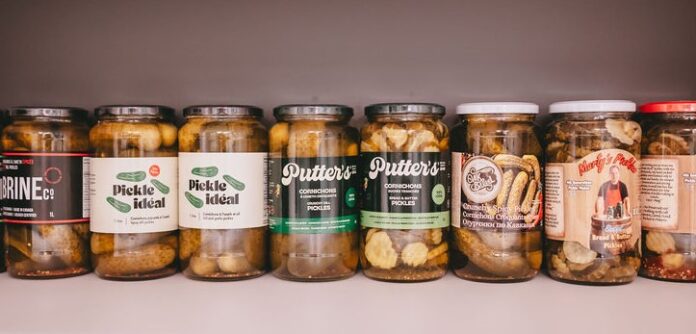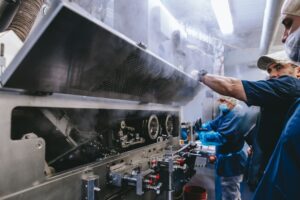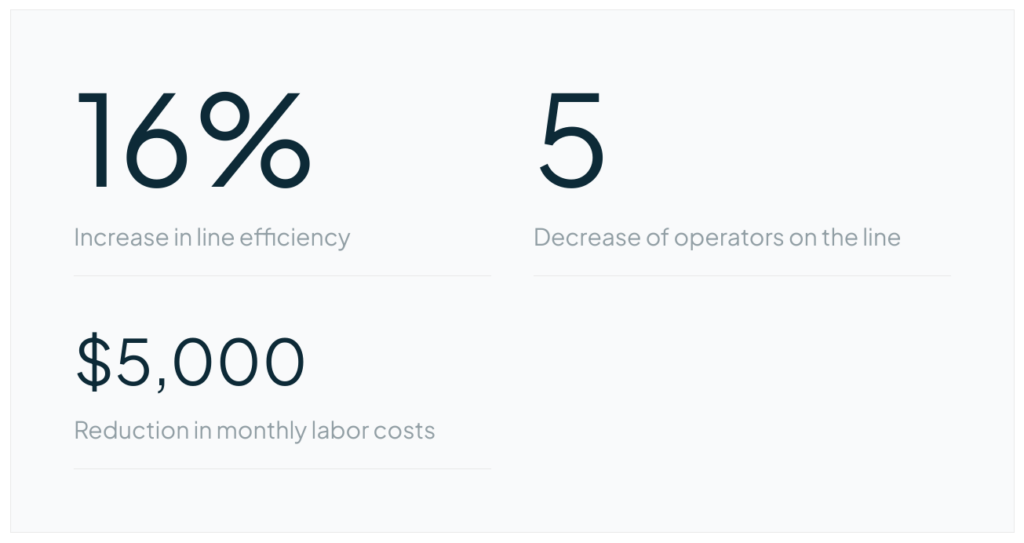
The Client
Founded in 1948 and incorporated in 1987, Putter’s specializes in producing pickled vegetables, including pickles, peppers, and sauerkraut. The company’s products are sold under the Putter’s brand as well as private and white labels across Canada and the United States. Serving clients in the retail, hospitality, and food service industries, Putter’s operates a 70,000-square-foot manufacturing and warehousing facility in Sainte-Sophie and employs over 75 people.
In 2021, Daniel Jorkovic and John Tartaglia acquired the business. By the fall of 2023, Putter’s further expanded by acquiring the assets of Whyte’s Food Inc., consolidating two manufacturing plants into a single 110,000-square-foot facility in Saint-Louis, Quebec. This acquisition has positioned Putter’s as the largest manufacturer and processor of pickles, peppers, and sauerkraut in Canada.
The Challenge
The Putter’s brand is built upon tradition, taste, and quality that comes from over 70 years of know-how and craftsmanship. Like most family-owned businesses, Putter’s had been operating for years under casual management practices as information regarding equipment, processes, and recipes was informally passed down from one generation to the next.
Without proper record keeping, it was challenging to implement standard operating procedures and optimize production capacity and output. Maintaining, and especially expanding, market share depended on consistently delivering high-quality products that consumers had come to expect. In 2022, Ould Boudjema was hired as Director of Production and Maintenance. His responsibilities included:
- Tracking equipment issues
- Reducing downtime
- Stabilizing labor costs
- Improving capacity
- Minimizing waste

“When I took over, there were hardly any maintenance records,” Boudjema recounted. “There was little data on the equipment, parts, or processes as knowledge was concentrated in the hands of a few long-time employees. This also extended to production techniques and the fermentation process. One of my priorities was documenting every step and making it accessible, ensuring this information was properly captured and transitioned.
In addition to proper record-keeping, Boudjema had to find a way to stabilize costs. Labor and raw materials are important factors in production efficiency and are significant expenses for any manufacturer. Ideally, the labor-to-output ratio should remain constant, with the same number of employees producing a consistent volume. But that wasn’t the case at Putter’s.
Effective production management extends beyond keeping the line moving. Improvements are found in a deep understanding of exactly what is happening and why, along with the ability to provide quantifiable data to drive improvement. The key lies in the ability to eliminate subjectivity and accurately measure production. As Boudjema discovered, that was nearly impossible without reliable data.

“I would ask the supervisor to report how many cases were produced, how much product was lost, and how long machines were down each hour. I then manually entered those numbers into an Excel spreadsheet to evaluate performance. At the end of the day, all I had was a chart full of numbers – and I questioned whether those were even accurate.”
Without reliable information, Boudjema was attempting to make improvements based on best guesses and theories. He knew it was time to leverage technology to gain clarity on where to direct the company’s efforts.
Thanks to Worximity we’ve reduced our workforce from around 30 to about 25 employees. This allows us to assign the right people to the right places and cut labor costs while continuing to meet production targets.
—Ould Boudjema,Director of Production and Maintenance,Putter’s Pickles
The Solution
Daniel, John, and Boudjema wanted a solution that would allow them to measure productivity without requiring large investments of time and resources to implement.
“Most systems we looked at were complex, less accessible, and difficult to use. In contrast, Worximity’s real-time production monitoring software was affordable and user-friendly. It offered everything small to mid-sized manufacturers like us need.”
He adds that the 30-day proof of concept approach helped to solidify the decision.
“The proof of concept confirmed that the system was easy to integrate into our operations. This put to rest any fears that the software would take up too much of our time and resources.”
Recognizing that the quickest and most effective way to boost revenue was by increasing volume while controlling costs, Boudjema leveraged Worximity to gain deeper insights into his operations.

“The software is very detailed but, there is a focus on the essentials. I can sort by downtime, equipment, by day, product type, format, and so on. And I can set production targets. I enter my production objectives into the system and monitor them by the minute. I know immediately when my line stops. Worximity keeps me up to date without constantly being on the floor. I can monitor everything that’s happening remotely and in real-time.”
Short production stoppages may seem insignificant, but on a production line, these micro stops can add up.
“Our production line is linear, but it’s very long. If a worker stops at one end of the line for maybe 10 seconds, it cascades down the line. By the time it reaches the other end, that stop lasted 45-50 seconds easily. Over a 10-hour day, stopping for 10 seconds here, 20 seconds there, adds up and dramatically affects schedules and costs.”
Armed with insights from Worximity’s software, Boudjema is much more confident when attending senior management meetings.
“Before, I didn’t have any concrete data to present. Now I come prepared with numbers and answers about production performance. This has greatly facilitated decision-making and even changed project priorities.”
He adds that the software assists in making informed business decisions by providing clear ROI projections.
“I can quantify our losses related to product falling on the floor, demonstrate potential savings if we invest in new equipment and quickly answer questions about labor, the profitability of investments, etc. My arguments are supported with data.”

For manufacturers experiencing or positioning themselves for growth, production insight is only part of the equation. With limited resources, small to mid-size organizations often benefit from outside experience to help identify and implement broader improvement opportunities. Recognizing that Worximity’s Continuous Improvement team offered a wealth of experience, Boudjema was eager to leverage their expertise.
“I’ve been in the industry for 21 years and I always appreciate a fresh perspective. Worximity has helped many manufacturers make meaningful improvements and I value that insight. I’ve tried other consultants, but they weren’t focused on the issues that mattered to us. Or they worked remotely, and we might see them once a year. Worximity didn’t just pitch software and say see you later. Their CI consultant is with us twice a week and we work on the essentials together. He’s my right-hand man, and I find that incredibly valuable.”

The Results
With Worximity’s help, Putter’s has successfully increased production while optimizing costs. Analyzing data showed fluctuations in employee numbers despite consistent production volumes. This prompted the company to adjust and improve process efficiency.
“Thanks to Worximity we’ve reduced our workforce from around 30 to about 25 employees. This allows us to assign the right people to the right places and cut labor costs while continuing to meet production targets.”
What’s more, workers are now engaged and more fully invested in the company’s success.

“We display metrics like downtime and losses on screens. People come in wanting to know how many units were produced compared to yesterday. I’ve seen a big difference in employee engagement. This has greatly improved production efficiency. Now I monitor live data, responding immediately when issues arise. This agility has allowed us to pivot production and effectively optimize our workforce.”
Reduced labor costs, more engaged workers, improved processes, and better decision-making have allowed Putter’s Pickles to scale post-acquisition operations more efficiently. These improvements have enhanced profitability and positioned the company to continue to dominate the retail space while growing its presence in the food service sector.






